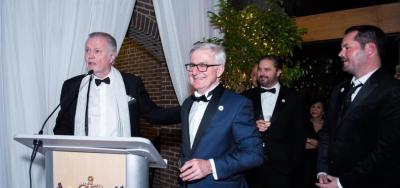Opinion: Announcing a budget boost for New Zealand’s foreign service this week, Winston Peters was unequivocal about the value of our diplomatic corps.
“As a small nation of fewer than five million people,” the Foreign Affairs Minister said, “skilled diplomacy has proven to be an essential part of protecting our vital national interests and securing domestic prosperity.”
Peters is right - and that’s why we need answers from our Washington embassy about the deal it struck with US lobbyist Robert Stryk and his Sonoran Policy Group (SPG).
Set against a nearly billion-dollar increase to our foreign budget, a $240,000 contract would not appear much to lose sleep about.
More concerning, however, is what the deal says about our diplomats’ ability to adapt to a changing environment, and to carefully choose who advocates on our behalf.
According to some, the embassy was in a state of near-mourning after Donald Trump’s election, having planned - even hoped - for a Hillary Clinton presidency (admittedly, they were not alone in doing so).
Caught out by an unpredictable president-elect and a chaotic transition process, it’s no surprise Ambassador Tim Groser and his team quickly jumped on anyone touting their ties to Trump.
Other countries had to employ unorthodox methods to reach the President: Australian golfer Greg Norman famously put Malcolm Turnbull in touch with Trump.
Nor is it unusual for foreign embassies in Washington to engage lobbyists to help them navigate Capitol Hill.
Continue to read the full opinion piece by Sam Sachdeva on Newsroom || May 10, 2018 |||





